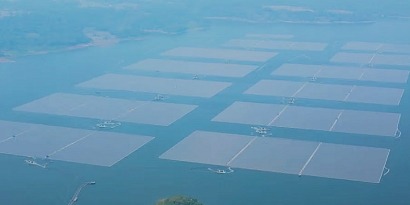
The development at the UN’s Climate Change Conference COP28 in the UAE builds on years of successful collaboration between Masdar and PLN. The partnership has already resulted in the launch of Southeast Asia’s largest floating solar power plant, the innovative 145 megawatt Cirata project. Located on the Cirata reservoir in West Java, Indonesia, the plant was inaugurated earlier this month and generates enough renewable energy to power 50,000 homes, while displacing 214,000 tonnes of carbon emissions per year.
The latest agreements were exchanged at COP28 and witnessed by Suhail Al Mazrouei, UAE Minister of Energy and Infrastructure, and the UAE Ambassador to Indonesia, ASEAN and Timor Leste, Abdulla Al Dhaheri. The agreements were signed by Masdar’s Chief Executive Officer, Mohamed Jameel Al Ramahi, Chief Executive Officer of PLN Group, Darmawan Prasodjo, and President Director of PLN NP, Ruly Firmansyah.
They included a framework agreement for a joint study into the tripling of Cirata’s capacity to up to 500MW. The companies also agreed to explore renewable energy options around the world and the prospect of developing green hydrogen, which has huge potential for decarbonizing hard-to-abate industries, including steelmaking, construction, transportation, and aviation.
With abundant solar resources, the UAE and Indonesia are in prime position to become green hydrogen production hubs. Both countries have bold net-zero targets which the deepening cooperation between Masdar and PLN will help to support.
Masdar’s Chief Executive Officer, Mohamed Jameel Al Ramahi, said, “Masdar looks forward to expanding its pioneering clean energy work with PLN. We were extremely proud to inaugurate the 145MW (192MWp) floating solar power plant with our valued partners earlier this month. The Cirata project shows how innovation can be used to meet multiple needs at once."
In September, Masdar and PLN signed an agreement to develop Phase II of the Cirata plant to triple capacity by up to 500MW. This came after a recent regulatory change from the Ministry of Public Works and Housing in Indonesia, which now allows up to 20% of water coverage for renewable energy uses. Built on water, the Cirata plant reduces land use, a key consideration for countries such as Indonesia where land is limited but water abundant. The water’s cooling effect can also improve efficiency and the panels reduce evaporation, saving water for drinking and irrigation.

